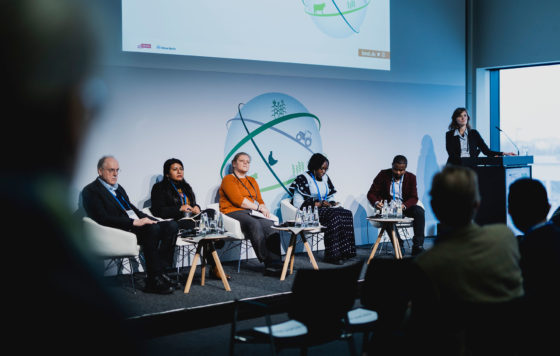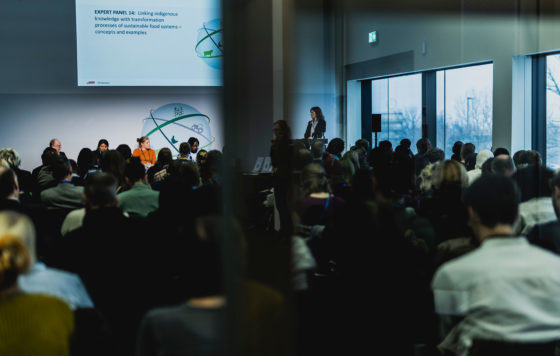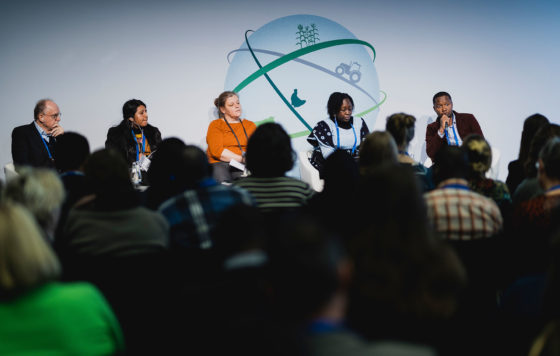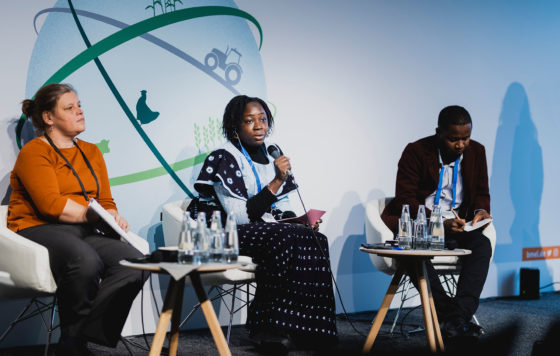Linking indigenous knowledge with transformation processes of sustainable food systems – concepts and examples
Welthungerhilfe
Humboldt University of Berlin
ZALF e.V.
Time: Friday, 20. January 2023, 11:30 a.m. – 1:00 p.m.
Room: M2-M3
Languages: English, German, French
Summary:
Against the backdrop of multi-dimensional food crises, the Expert Panel “Linking indigenous knowledge with transformation processes of sustainable food systems – concepts and examples”, jointly organized by Deutsche Welthungerhilfe e.V. (WHH), Leibniz Centre for Agricultural Landscape Research (ZALF) and Humboldt-Universität zu Berlin discussed the crucial role of indigenous peoples´ and their knowledge systems in designing equitable, inclusive, sustainable, and resilient food systems.
The moderator of the event Dr. Katharina Löhr (ZALF) welcomed more than 150 participants to the vivid discussion, which was kicked off with a keynote by Prof. Joachim von Braun (Bonn University). By presenting best practices and their scalability potential to foster better linkages between “indigenous” and “academic” knowledge systems, experts from academia and practice (Collela Madjebi BE, GSDM; Tania Eulalia Martinez-Cruz, VUB; Dr. med. Fatimata Koné, WHH & Dr. Céline Termote, Alliance Bioversity-CIAT) clearly demonstrated that disparate knowledge systems are compatible.
The experts´ contributions made evident that technological, social, and policy innovations must be developed in co-creation with local communities respecting and fostering their traditional knowledge systems. This requires supportive political action which ensures an equitable representation of indigenous peoples´ and their knowledge systems in policy processes on all levels, as summarized by commentor Asja Hanano (WHH).
Keynote Speaker
Panel Guests
Currently, she is Head of Project of an emergency project in cooperation with the German Federal Foreign Office and WFP in the central regions of Mali (Mopti & Segou) with the main object to ensure that long-term displaced and vulnerable rural residents have access to food, nutrition, and sustainable livelihoods through the provision of unconditional food assistance.
Moderation










